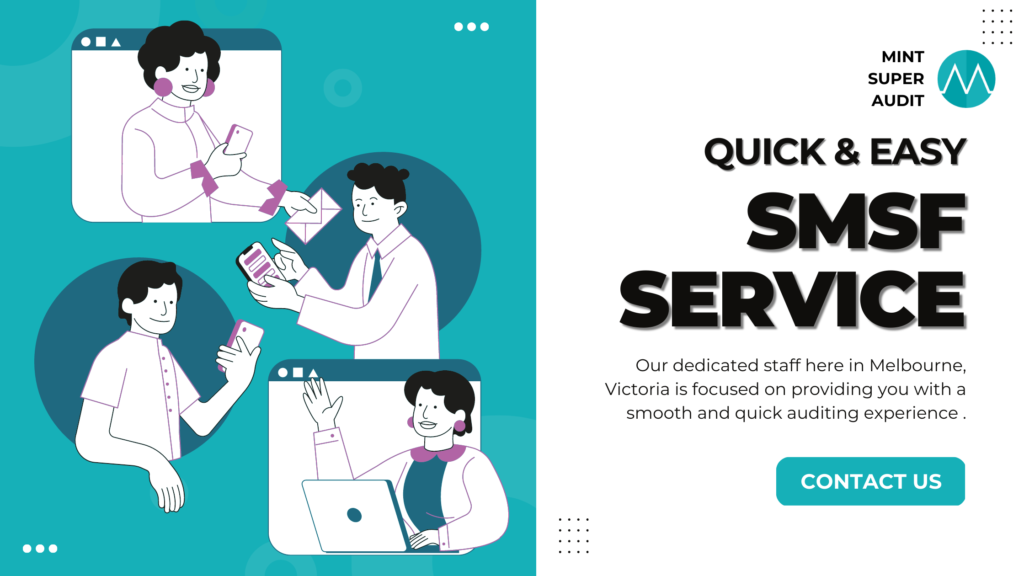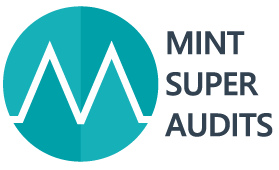As a new SMSF trustee (self-managed super-fund), there are certain rules and regulations that you’ll need to get accustomed with to ensure smooth sailing of your superannuation!

Table of Contents
1. Skipping or failing to pay the minimum pension
Be sure to pay at least the minimum pension amount or there can be problems for anyone in the retirement phase or receiving a transition to a retirement pension. It could lead to unnecessary tax in the fund and compliance issues. Having access to tax concessions is one of the benefits of a superannuation is access to tax concessions, so be sure to take advantage and maximise it!
There are strict rules that apply to pensions, any income earned on assets supporting pensions is tax-free in the retirement phase. Failing to maintain pensions properly may result in loss of benefits and then having to pay tax on those earnings within the fund.
There may be instances of unexpected errors that can occur, resulting in small underpayments of the pension. It is important to make a catch-up payment to get things back on track and not impact tax concessions. Just be sure that the minimum amount will be paid automatically before 30 June.
2. Ignoring the investment rules
SMSFs provide the opportunity to invest in a wide range of investment types, including shares, property, term deposits, and cash.
It is however vital to ensure that the SMSF obeys and complies with the rules that apply to super funds. A majority of these rules apply where a person, company or trust has a significant link with the fund. These rules apply to members, trustees, any of their relatives and companies or trusts they control. Penalties such as the fund losing its tax concessions could happen if the fund makes a loan, invests in or leases assets to a related party.
Unless it is specifically allowed by the superannuation law, any assets or money belonging to the fund must not be used for personal or business purposes. The money in the fund can never be considered as a readily available finances and cannot be used for emergencies. The sole purpose fund investments are for providing benefits for the member or their dependents for superannuation purposes and not for personal reasons.
Proper planning and monitoring of the SMSF on an ongoing basis is required to ensure compliance with the investment rules. Trustees need to make sure the fund does not run into trouble with the superannuation investment rules when the values of investments change, or related parties are involved.
3. Using the money in your SMSF for personal reasons
A common mistake done by both old or new SMSF trustees is when they utilise their retirement savings for personal or business reasons. Big mistake.
There have been instances where people take the money from their SMSF accounts to pay for personal or business expenses to help themselves, family members, or even their friends. In most cases, they are not aware that they’re taking the money out of their SMSF.
It is important to separate one’s personal and business bank accounts from their SMSF accounts. Taking money from the superannuation before you are allowed to may result in the fund and member to be severely penalised. Any amount withdrawn in breach of the rules has to be repaid as soon as possible. Frequent breaches may result in being disqualified from running an SMSF and include financial penalties.
4. Investments that are not in the fund’s name
Do ensure that your SMSF investments are not mixed up with personal investments. The superannuation law states that the assets of a fund must be in the name of the individual trustees or the corporate trustee. If the investment is not in the fund’s name, the trustee must provide supporting documentation that demonstrates that the asset belongs to the fund, such as through declarations of trust or trustee minutes should be maintained.
If ever in the case a member becomes bankrupt, investments held in the name of the fund are safe from the member’s creditors in most cases.
5. Misplacing important documents
Be sure to safeguard the documents of the fund such as the trust deeds, minutes of meetings and decisions, investment information, membership, and trustee acceptances. These documents are needed for compliance, audits and instances for when the trustees of the fund may be brought to account. Any loss of documents may result in an unsatisfactory outcome as disputes could arise between the trustees, members and others claiming a fund benefit.
All SMSFs are required to keep certain specified records for at least five years and other documents for at least ten years.
Records that need to be kept for five years are:
• Accounting records with accurate information about the transactions and financial position of the fund
• The annual operating statements and the annual statements of the fund’s financial position
• Copies of all SMSF annual returns lodged with the ATO
• Copies of any other statements lodged with the ATO or provided to other super funds.
Records that are required to be kept for ten years are:
• Trustee minutes of meetings and decisions on matters affecting the fund
• Records of changes to trustees and the member’s written consent to be appointed as a trustee
• Trustee declarations recognising the obligations and responsibilities for any trustee, or director of a corporate trustee, appointed after 30 June 2007
• Copies of all reports given to members, and
• Documented decisions about the storage of collectables and personal use assets.
Learning from your mistake is wise, but heading to Mint Super Audits’ guide is wiser.

These common mistakes are easily avoidable and it will save the SMSF from being penalised for breach of the superannuation rules. Speak with our team at Mint Super Audits to ensure that your SMSF audits go smoothly – today!




